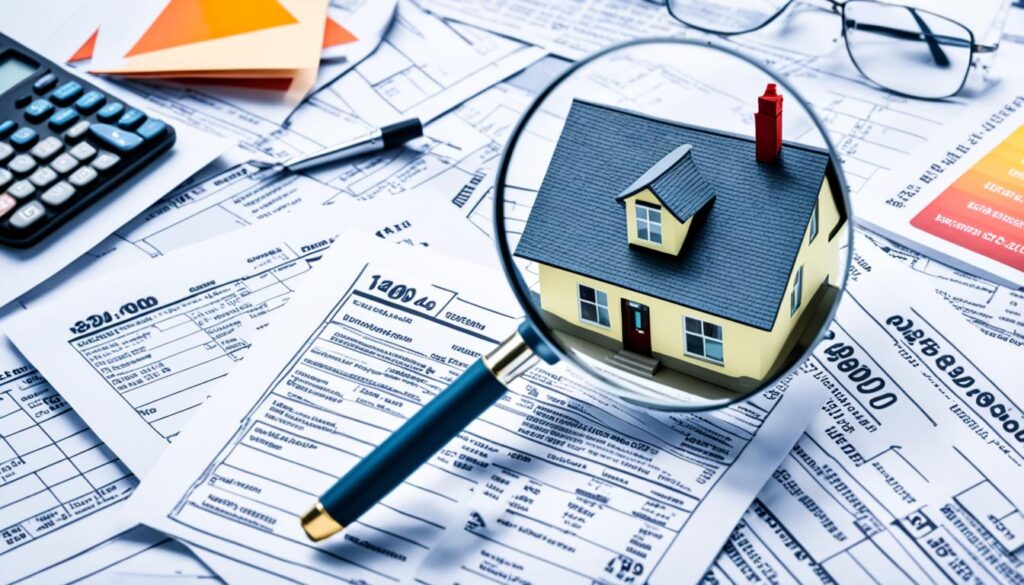Getting a new roof is a big expense. But it may not be all bad news. You might get some *tax relief* on it.
A new roof often falls under home improvement projects. This means you might not get to claim it in the same year. But, it does increase your home’s adjusted basis.
But what does adjusted basis mean? It’s your home’s original price, plus any upgrades, minus depreciation. When you sell, this becomes key for tax reasons.
It’s important to keep good records of your *home improvements*. Although you can’t deduct them right away, detailed notes are crucial. For more info on tax and home upgrades, visit the IRS website.
Key Takeaways
- A new roof can be considered a home improvement project.
- It adds to the adjusted basis of your home, impacting taxes on sale.
- Immediate deductions for roof replacements are uncommon.
- Keep thorough records of all improvements for future reference.
- Consult the IRS website for detailed and up-to-date information.
Understanding Roof Tax Deductions
Figuring out roof tax deductions might be tough at first, but it gets easier. It’s crucial to know the difference between fixing your home and improving it. Each type of work can affect your tax benefits.

What is Considered a Roof Tax Deduction?
In the world of tax laws, what you spend on your roof is key. If the spend improves your home, like getting a whole new roof, it’s often a deduction. This is because these changes make your home more valuable. The IRS guidelines for roof deductions state these upgrades are good for your home’s worth over time.
- *Replacing* the entire roof
- *Renovating* structural aspects
- *Enhancing* energy efficiency
Differences Between Home Improvement and Home Repair
Think of home improvements as sprinkles on a sundae. They raise the value of your home. On the other hand, home repairs, like fixing leaks, just keep things running. Here’s a comparison:
| Home Improvement | Home Repair |
|---|---|
| Boosts property value | Maintains property condition |
| Eligible for future tax basis adjustment | Generally not deductible |
| Examples: new roof, kitchen renovation | Examples: painting, minor roof patching |
Depreciating Roof Expenses
Looking into the tax laws for roofing expenses means knowing how home improvements pay off. These improvements, like a new roof, can be spread out over many tax years. The IRS allows this to give you tax breaks over time.
Knowing about roof tax deductions does take some time. But, the benefits are worth it. Stay up-to-date, and preparing your tax returns will be easier!
Are New Roof Tax Deductible: Eligibility and Guidelines
Thinking about a new roof? It’s smart to know the IRS rules. Getting a new roof enhances your home’s value. This may affect how you benefit tax-wise from your roof update.
IRS Guidelines for Roof Tax Deductions
Wondering what IRS rules on new roofs are? If your home has a home office or you rent it out, there’s good news. You might get to deduct your roof’s cost over time. For your main home, getting tax breaks up front is rare. Instead, focus on how it boosts your home’s value. This can help when you sell.
Energy-Efficient Roofing and Tax Credits
Energy-efficient roofs could mean tax credits. Choosing these materials can lower your bills and qualify you for these benefits. The IRS likes energy-saving upgrades. They help make your home greener.
Understanding tax benefits for roofs is wise. It lets you plan your finances according to the law. Whether it’s about rental property or saving on energy, staying informed is key. It ensures your investments pay off during tax time!








